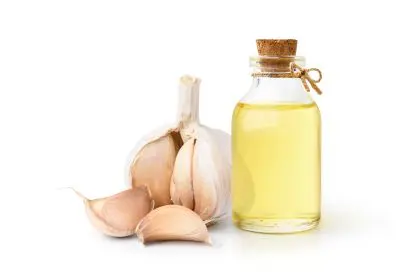A comprehensive guide to nature’s most effective sleep solutions

Understanding aromatherapy’s impact on sleep
The pursuit of restful sleep has led to a growing interest in natural remedies, with essential oils emerging as powerful allies in the quest for better rest. These concentrated plant extracts offer a gentle yet effective approach to improving sleep quality, supported by both traditional wisdom and modern research. Aromatherapy’s appeal lies in its unique ability to harness the power of the olfactory system, which directly influences the brain’s emotional and memory centers. This natural approach to sleep enhancement is drawing attention from researchers and health practitioners who seek alternatives to conventional sleep medications.
Top essential oils for sleep enhancement
Essential oils can be used individually or in combination to create a calming atmosphere conducive to sleep. While each essential oil has unique properties, they all contribute to relaxation and stress relief, setting the stage for better rest.
Lavender
Lavender essential oil is often considered the gold standard in aromatherapy for sleep. This oil, with its light, floral scent, has been widely studied and praised for its effectiveness in promoting restful sleep. Scientific evidence highlights its ability to:
Reduce anxiety levels significantly: The soothing fragrance of lavender helps decrease the production of cortisol, the stress hormone that can interfere with sleep.
Improve sleep quality metrics: Regular use has shown improvements in the duration and depth of sleep.
Lower stress hormone levels: Lavender helps the body relax by reducing the sympathetic nervous system’s activity.
Enhance overall sleep duration: Studies indicate that people using lavender essential oil experience longer periods of uninterrupted sleep.
Cedarwood
Cedarwood essential oil is known for its grounding properties, making it a popular choice for promoting relaxation and aiding sleep. Its benefits include:
Promotes natural melatonin production: The scent of cedarwood has been linked to an increase in melatonin levels, the hormone responsible for regulating sleep cycles.
Reduces nervous system activity: Cedarwood helps slow the mind, making it easier to fall asleep.
Improves focus and attention: Although its primary function is sleep, cedarwood also supports cognitive functions, creating a balanced approach to mental well-being.
Provides pain-relieving properties: This oil can also help ease minor aches and discomforts that may disrupt sleep.
Patchouli
Patchouli essential oil is recognized for its deep, earthy aroma and its wide range of wellness benefits. Its unique qualities include:
Natural sedative properties: Patchouli can help the body and mind unwind, easing tension.
Emotional stabilization: Known for its calming effect, patchouli helps balance emotions and promote a sense of well-being.
Anti-inflammatory benefits: Useful for reducing inflammation that may contribute to discomfort during the night.
Anxiety reduction capabilities: This oil has been shown to reduce anxiety, aiding in a restful night’s sleep.
Marjoram
Marjoram is a versatile oil with a variety of benefits for sleep support:
Hormone regulation: Marjoram can assist with balancing hormonal levels, which can affect sleep cycles.
Digestive improvement: As digestion and sleep are interlinked, this oil can promote relaxation by addressing digestive discomforts.
Muscle tension relief: This oil can help soothe tight muscles, a common contributor to disrupted sleep.
Anxiety reduction: Marjoram’s calming properties extend to reducing feelings of stress and anxiety.
Ylang ylang
Ylang ylang, with its sweet and floral fragrance, provides a multi-faceted approach to sleep support:
Blood pressure regulation: This oil helps lower blood pressure, aiding relaxation.
Headache relief: Its soothing properties can ease headaches that interfere with sleep.
Respiratory support: This oil helps open the airways, making it easier to breathe while sleeping.
Anxiety reduction: Ylang ylang promotes an emotional sense of calm, preparing the body for rest.
Application methods and safety
The effectiveness of essential oils depends on how they are used. Here are some of the most popular methods for incorporating essential oils into a sleep routine:
Diffusion techniques
Room diffusion: Run a diffuser for 30 to 60 minutes before bedtime to fill the space with calming scents.
Pillow misting: Spray 2 to 3 drops of diluted essential oil onto your pillowcase to provide a subtle, long-lasting aroma.
Personal inhalers: These allow for direct inhalation, providing immediate aromatherapy benefits.
Jewelry diffusers: Wearable diffusers allow you to carry the scent with you throughout the night.
Topical applications
Dilution requirements: Always dilute essential oils with a carrier oil, such as coconut or jojoba, before applying to the skin. The standard ratio is 2 to 3 drops per teaspoon of carrier oil.
Safe application areas: The chest, neck, and feet are the best areas for topical application to encourage absorption and scent dispersion.
Patch testing: Always test a small amount on your skin to ensure there is no adverse reaction.
Carrier oil selection guidelines: Choose non-irritating carrier oils to avoid skin sensitivity.
Creating effective blends
Blending essential oils can amplify their sleep-enhancing benefits. These combinations harness the synergistic properties of different oils, creating a more comprehensive approach to relaxation.
Sleep-promoting combinations
Calming blend: Mix 3 drops of lavender, 2 drops of cedarwood, and 1 drop of marjoram for a soothing and stress-reducing mixture.
Deep sleep blend: Combine 3 drops of patchouli, 2 drops of ylang ylang, and 1 drop of vetiver to create a deeply relaxing scent perfect for promoting deep sleep.
Maximizing benefits
Incorporating essential oils into your routine can be more impactful with a few strategic considerations:
- Consistent nightly routine: Use your chosen aromatherapy method at the same time each night to create a reliable signal for sleep.
- Proper timing of application: Apply oils 30 to 60 minutes before bedtime to allow time for the scents to take effect.
- Environmental considerations: Ensure the bedroom is conducive to sleep, with dim lighting and a cool temperature.
- Complementary sleep practices: Aromatherapy works best alongside healthy habits like maintaining a consistent sleep schedule and limiting screen time before bed.
Safety considerations
- Pregnancy precautions: Some essential oils may not be safe during pregnancy, so consult a doctor before use.
- Pet safety awareness: Certain essential oils can be toxic to pets, so be cautious about their use in shared spaces.
- Child-specific dilutions: If using essential oils for children, always follow age-appropriate dilution guidelines.
- Medication interactions: Essential oils may interact with certain medications, so seek medical advice if you are taking prescribed drugs.
Building a sleep ritual
Transform your bedroom into a sleep sanctuary by following these tips:
- Create a consistent aromatherapy routine: Set aside time each evening to prepare your space and use your chosen essential oils.
- Establish proper ventilation: Fresh air helps maintain a comfortable atmosphere for sleep.
- Maintain appropriate oil storage: Keep essential oils in a cool, dark place to preserve their potency.
- Regular diffuser maintenance: Clean your diffuser regularly to avoid buildup that may affect performance and scent quality.
Embracing essential oils as part of your nightly routine could be the key to enhancing your sleep quality naturally and effectively.















